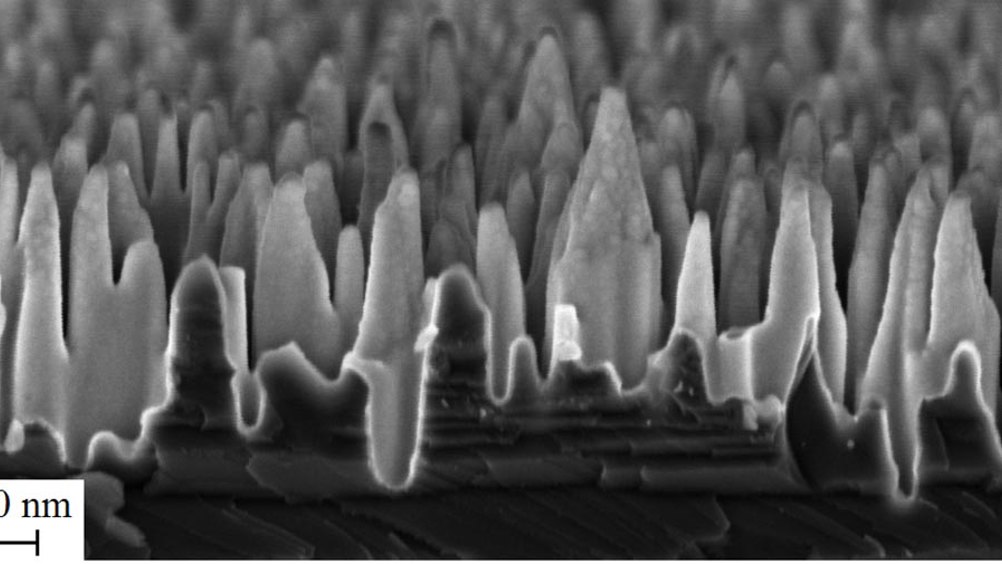Black silicon work could lead to ultra-efficient solar cells
A research group from Finland claims that its work on black silicon could help speed the development of a new ultra-efficient generation of solar cells.

Black silicon is a modified form of silicon that, thanks to a needle-shaped surface structure, has low reflectivity and high absorption of light. The material’s properties have always excited the photovoltaics community, but problems with surface recombination have hampered its application.
Now, working alongside experts from the Fraunhofer Institute for Solar Energy Systems ISE, the group from Aalto University in Helsinki, claims to have improved the characteristics of the material by applying an atomic layer to the silicon.
This is claimed to not only enhance the light absorption of the silicon but also its surface passivation, which means that it is more resistant to impurities.
According to research published in the Journal of Photovoltaics, the breakthrough could help the development of high-efficiency solar cells and could also have benefits for other areas of technology, such as drug analysis.
Register now to continue reading
Thanks for visiting The Engineer. You’ve now reached your monthly limit of news stories. Register for free to unlock unlimited access to all of our news coverage, as well as premium content including opinion, in-depth features and special reports.
Benefits of registering
-
In-depth insights and coverage of key emerging trends
-
Unrestricted access to special reports throughout the year
-
Daily technology news delivered straight to your inbox











National Gas receives funding to develop Gravitricity underground hydrogen storage system
One single rock salt mine - Winsford - has 23 <i>MILLION </i>cubic metres of void and even allowing for 10% of that void set aside for hazardous waste...